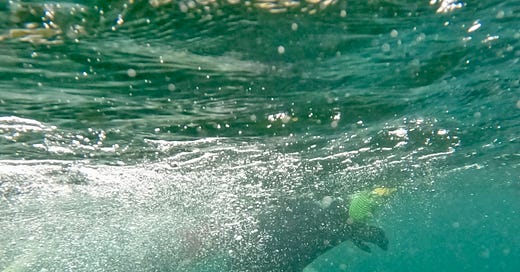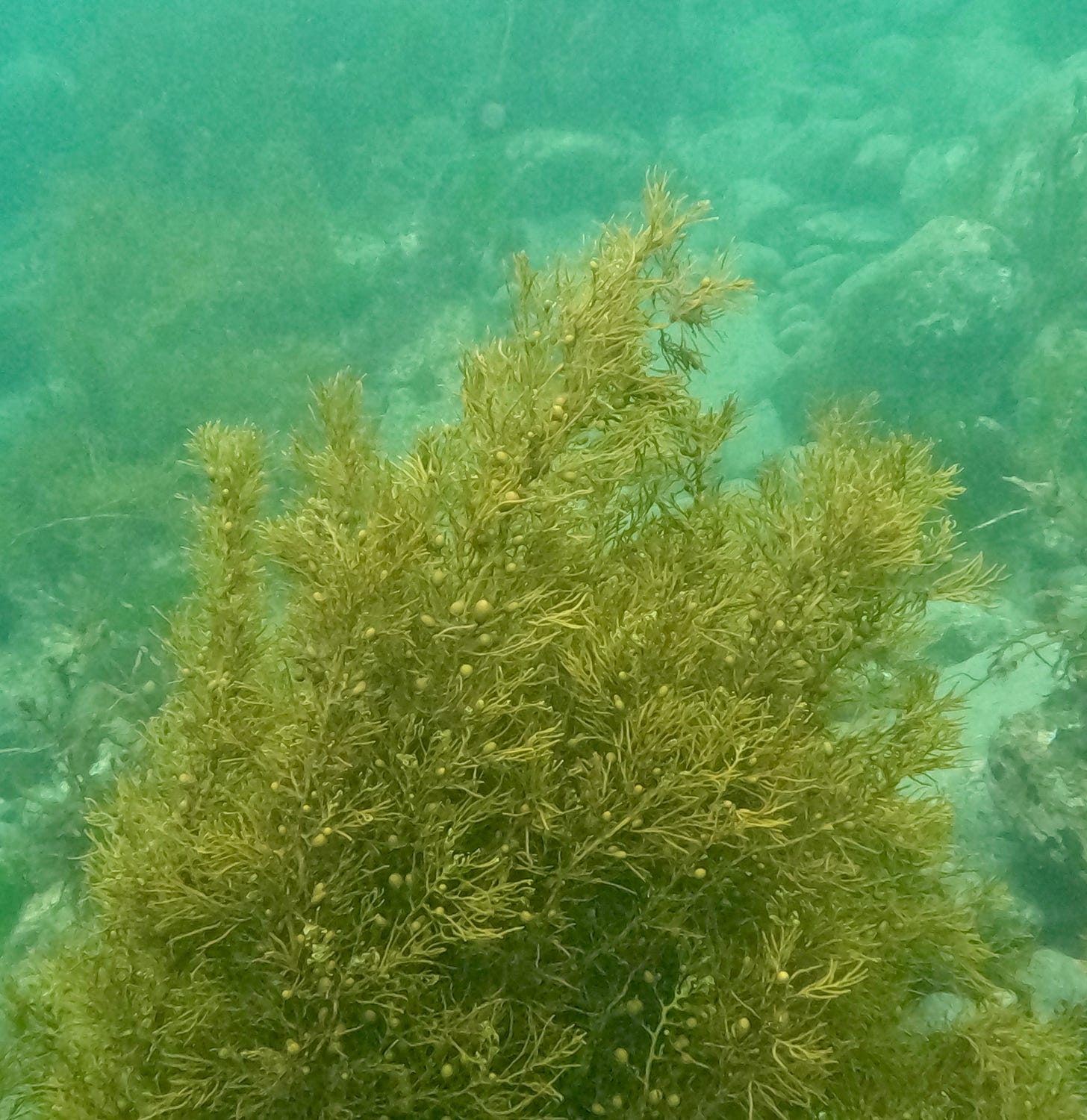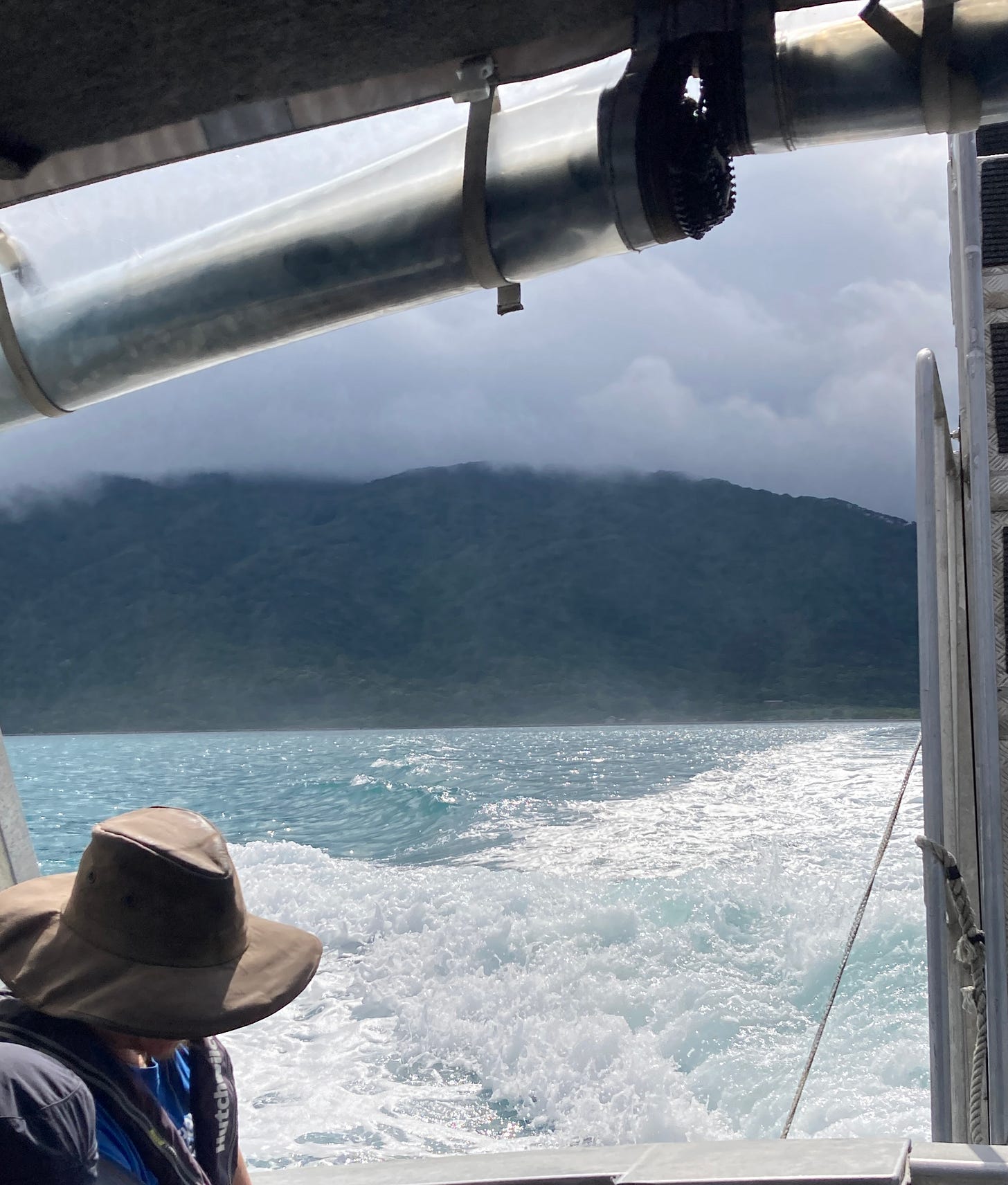Like everyone else in Aotearoa, my thoughts have been with those affected by February’s flooding and Cyclone Gabrielle. The official advice is to donate money not goods, so if you have change to spare here is the Red Cross donation link.
*
Last weekend I attended a community snorkel with Mountains to Sea Wellington on Kāpiti Island. I signed up because:
I’d never been to Kāpiti Island before, despite driving past it on the former State Highway One approximately a million times.
Mountains to Sea are awesome. I attended their Island Bay snorkel a year ago (and documented it here) and had a great time. I remember thinking: ‘This is amazing, I’m going to come back every weekend’ and then I didn’t do it once! So I was keen for another snorkel experience, especially in a more remote area.
But the night before the event, I was feeling less enthusiastic. It was pouring with rain and a southerly was howling outside. I knew they would cancel the event if conditions were bad, but if it went ahead… did I still want to go? I was feeling exhausted. Work was demanding, I had one more day before my Master’s course was due to re-commence for the year, and there was plenty of other family/life stuff going on. A few days earlier we’d also experienced a sharp shake in Wellington (6.3 on the Richter scale, not far away), which was enough to set my dog off barking madly and put me in a state of hyper-vigilance. On a wider scale, and far beyond my own preoccupations, we were also in a state of national emergency after Cyclone Gabrielle.
In summary, Things Weren’t Great. I won’t go, I decided.
But on Sunday morning at 6am, I felt differently. It was still overcast, but the wind had gone. Faced with the usual list of chores if I stayed home, I decided a mental break and a little adventure was in order. Along with my swim buddy Sinead, I drove up to the ferry departure point in Paraparaumu, which is 45 minutes by car from my house. The ferry ride itself, on a small boat with about 20 people on board, took all of 15 minutes. It was a smooth crossing. Why had it taken me so many years to do this? And not only was I getting to step onto the island, I was going to snorkel in the marine reserve too!
Kapiti Island is a nature reserve, about 20km long, with centuries of Māori history (including the war chief Te Rauparaha, who lived there in the early 1800s), as well as 19th-century whaling (sob – some old trypots are still there as a bleak reminder), and conservation (Richard Henry, famous for trying to save the kākāpō in Fiordland down south, lived on the island for a while). The island is now free of rats, stoats and possums, which all prey on native birds and their eggs, and cause damage to plants and wildlife habitats.
After a quick introduction from the local ranger and a rundown on the local birds (which I knew well after several years of working at Predator Free NZ: tūī, hīhī, kākā, kīwī, ruru, weka, takahē… there’s a great website called NZ Birds Online to learn more about them), we squeezed into wetsuits, grabbed a mask and flippers (tip: toothpaste rubbed onto a mask and then rinsed off helps prevent fogging, don’t ask me how) and ambled down to the beach. There was a few minutes of faffing as we all got in the water and adjusted masks, then we were off – but not very far, because it was a community snorkel and not a swim marathon.
The marine reserve covers about 2,000 hectares across both sides of the island. From the surface, you wouldn’t even know it was there. Despite the rain, the water was a lovely clear blue with vibrant, bright-green sea lettuce, giant kelp, zigzag weed and Neptune’s Necklace seaweeds swaying below us. We spotted the occasional blue cod swimming along the seafloor and lots of little triplefins. But my favourite part was just floating with my face in the water, on the lookout for aquatic gems but mainly enjoying the immersion and peace and blue beauty of the underwater world, especially one so relatively untouched around the island. The marine reserve has existed there for 30 years.
I don’t know how our guide Michelle was able to identify her charges (5 of us) when we all looked identical in neoprene suits and masks, but she begged us to stick close as we kept getting distracted by pretty fish and following them, like Alice with the White Rabbit. Our 45-minute time limit flew by in an instant. We got out, got changed (much harder work than snorkelling), ate our packed lunches while protecting them from the determined kākā, and in our remaining few hours we hiked up part of the island to visit the hīhī (stitchbird) feeding area, which was a magnet for an incredible cacophony of hīhī, more than I’d ever seen before.
Me and my new kākā friend.
Then it was time to get on the little ferry, zoom across to the mainland, drive home and back to the day-to-day of it all. But I felt refreshed – and a good tired – and it was a reminder of what’s important to me (protecting marine reserves, spending time in the sea, talking to people, trying new things).
That was the last snorkel event on the island until next year, but if you’re feeling inspired you can check out Kāpiti Island Nature Tours.








I went to Kāpiti island back in 2005 after working in Northland NZ for a year, so it was lovely to see these pictures! It was that 18 months in glorious NZ that really got me into the sea - snorkelling around Northland was just amazing. Now back in the UK (I still wonder why we came back...) I need more mm of wetsuit to explore our Devon and Cornwall coastline, and there's less life in our waters (we need more marine reserves) but I still love sea swimming and snorkelling, and increasingly river and lake swimming due to my proximity to Dartmoor. (see my Lou's Outdoors substack if you're interested!)
Small adventures are just the best! Good on you for getting out there. And thanks for sharing!
What a fantastic thing to do. I'm not very good at snorkelling but love floating over 'the world beneath' and just gazing through clear goggles at everything. I recognised 2 of the seaweeds from my own coast here in Tasmania but I understand the blue cod is native to NZ. So much to learn and so much to protect... Wonderful post!